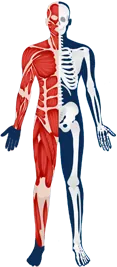- Home
- Browse by Disease
- Fetal minoxidil syndrome
Fetal minoxidil syndrome
- Other Names:
minoxidil antenatal infectionminoxidil antenatal infection
Read More
Read Less
Many rare diseases have limited information. Currently, GARD aims to provide the following information for this disease:
GARD does not currently have information about the cause of this disease.
8 Symptoms
8 Symptoms

Knowing where to start your diagnostic journey and how to navigate the next steps are critical to speeding your time to diagnosis


Establishing care with a dedicated primary care provider (PCP) is an important early step in your rare disease journey. A PCP can help improve care and shorten the time to diagnosis by providing referrals to the appropriate specialists. These specialists, with advanced training in different body systems or types of diseases, can offer the specialized diagnostic procedures you need.
Use this tool by Medicare to find a PCP in your area by inputting your location and keyword "Primary Care Provider."

If you've visited your PCP, met with specialists, and undergone the recommended tests, but still do not have a confirmed diagnosis, it may be time to visit a multidisciplinary care center. Multidisciplinary care centers are usually teaching, university, or research hospitals that have teams of medical experts and specialists working together in the same location. This means a wide range of diagnostic tests and clinical knowledge are available at one facility, which can help increase communication and collaboration among your care team. The additional resources often available at multidisciplinary centers may help speed the time to diagnosis for rare diseases.

If you've visited your PCP, met with specialists, and undergone the recommended tests, but still do not have a confirmed diagnosis, it may be time to visit a multidisciplinary care center. Multidisciplinary care centers are usually teaching, university, or research hospitals that have teams of medical experts and specialists working together in the same location. This means a wide range of diagnostic tests and clinical knowledge are available at one facility, which can help increase communication and collaboration among your care team. The additional resources often available at multidisciplinary centers may help speed the time to diagnosis for rare diseases.
If a diagnosis remains unknown despite extensive efforts by your PCP and specialists, it can be challenging to know what kind of expert you may need or where to find one. A rare disease expert is a care provider that has knowledge or training on specific disease(s), but there may only be a few experts in your state, region, or country. Rare disease experts may work at large research or teaching hospitals. In complex cases, coordinating with a network of experts can help your care provider find the right diagnosis.
Contact a GARD Information Specialist for help finding an expert.


If a diagnosis remains unknown despite extensive efforts by your PCP and specialists, it can be challenging to know what kind of expert you may need or where to find one. A rare disease expert is a care provider that has knowledge or training on specific disease(s), but there may only be a few experts in your state, region, or country. Rare disease experts may work at large research or teaching hospitals. In complex cases, coordinating with a network of experts can help your care provider find the right diagnosis.
Contact a GARD Information Specialist for help finding an expert.
Patient organizations can help patients and families connect. They build public awareness of the disease and are a driving force behind research to improve patients' lives. They may offer online and in-person resources to help people live well with their disease. Many collaborate with medical experts and researchers.
Services of patient organizations differ, but may include:


4 Organizations
Organization Name
Who They Serve
Helpful Links
Country
Clinical studies are part of clinical research and play an important role in medical advances, including for rare diseases. Through clinical studies, researchers may ultimately uncover better ways to treat, prevent, diagnose, and understand human diseases.

Clinical studies are medical research involving people as participants. There are two main types of clinical studies:
People participate in clinical trials for many reasons. People with a disease may participate to receive the newest possible treatment and additional care from clinical study staff as well as to help others living with the same or similar disease. Healthy volunteers may participate to help others and to contribute to moving science forward.
To find the right clinical study we recommend you consult your doctors, other trusted medical professionals, and patient organizations. Additionally, you can use ClinicalTrials.gov to search for clinical studies by disease, terms, or location.
ResearchMatch helps connect people interested in research studies with researchers from top medical centers across the United States. Anyone from the U.S. can register with this free program funded by NIH. Researchers from participating institutions use the database to search for and invite patients or healthy volunteers who meet their study criteria to participate.
The All of Us Research Program is inviting 1 million people from all backgrounds across the U.S. to help build one of the most diverse health databases in history. Researchers will use the data to learn how our biology, lifestyle, and environment affect health. This may one day help them find ways to treat and prevent diseases.
ResearchMatch helps connect people interested in research studies with researchers from top medical centers across the United States. Anyone from the U.S. can register with this free program funded by NIH. Researchers from participating institutions use the database to search for and invite patients or healthy volunteers who meet their study criteria to participate.
The All of Us Research Program is inviting 1 million people from all backgrounds across the U.S. to help build one of the most diverse health databases in history. Researchers will use the data to learn how our biology, lifestyle, and environment affect health. This may one day help them find ways to treat and prevent diseases.
Last Updated: December 2024